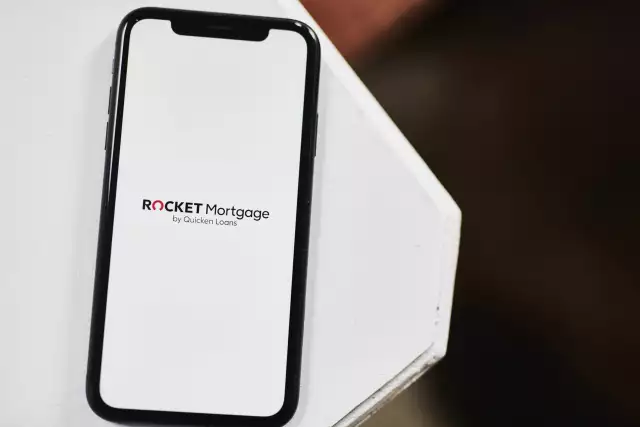What is a home equity investment? Guide to equity sharing agreements
What is a home equity investment? Guide to equity sharing agreements
Tap home equity without a second mortgage
Most homeowners who want to liquidate home equity look to traditional mortgage options like a cash-out refinance, home equity loan, or HELOC. But there is another way to tap into your home’s equity today: a home equity investment or “equity sharing agreement.”
With a home equity investment, you sell a portion of your future home equity and receive a lump sum cash payment in return. These agreements can be complicated and not every homeowner will qualify. But for those that do, this can be a smart way to access your home’s cash value without taking on a new mortgage payment.
If you’re interested in an equity sharing agreement, here’s what you should know.
In this article (Skip to...)
What is a home equity investment?
A home equity investment, also called an “equity sharing agreement,” is a relatively new financial product that allows you to sell equity in your home in exchange for an upfront cash payment. But this is not a loan, and no monthly payments are required. Also, it doesn’t involve taking on debt or selling your home.
By contrast, most homeowners who want to access their home’s cash value need to either refinance their mortgage, take out a second mortgage, or sell the property. In a high-rate environment, taking on a new home loan may not sound very appealing. And that’s where equity sharing agreements come into play.
With this arrangement, you partner with a home equity investment company — such as Hometap, Splitero, Unlock, Unison, Point, or Fraction — and get fast cash by selling a portion of the home equity you’ve accrued.
How equity sharing agreements work
Home equity investment companies can offer you immediate cash in exchange for a stake in your future home equity. Often, you’ll have to repay the amount you’re given at the end of a set term — plus a percentage of any home equity gains you accrued in that time.
Home equity investment example
Andrew Latham, a certified financial planner and editor of SuperMoney.com, says the way home equity investments work can vary a bit from company to company. Here’s an example of how one specific model works:
“Imagine you own a home in California worth $500,000. You have $200,000 in equity accrued. You seek $100,000 of cash from a home equity investment company. The company offers you the $100,000 for a 25% share in your home’s future appreciation,” says Latham.
He continues, “Let’s assume your home’s value rises to $740K over the next 10 years (a decade is a common term for a home equity investment). That assumes an annual appreciation rate of around 4%, which is close to the historical average. In this scenario, you would be required to repay the $100,000 investment as well as 25% of your home’s appreciated value.”
Using this example, that would mean you owe $100,000 plus $60,000 ($240,000 in increased home value x 25%).
Two types of home equity investments
Home equity investments actually come in two forms: shared equity and shared appreciation. With the former, as you build equity in your home, the home equity investor does as well. With the latter, the investor only shares a portion of the appreciation above a set starting point.
Home equity investment pros
The main advantage of entering into a home equity investment is that you can pull out home equity without getting into further debt, as opposed to a cash-out refi, home equity loan, or HELOC.
“Additionally, there are no monthly payments, which is a great plus for homeowners struggling with cash flow,” says Latham. “The amount you have to return to the investor will vary depending on how much your property increases in value. If your home drops in value, so does the amount you have to pay back.”
Furthermore, with shared appreciation models, you typically have at least 10 years until the investment plus the share of appreciation needs to be repaid. No monthly or minimum payments need to be made before that term expires. (You’ll need to repay if you sell or refinance your home earlier, however.)
Home equity investment cons
On the downside, you can end up paying the company a high rate of return for the equity you sold if your home value increases substantially. If you opted for a home equity loan or cash-out refi with a lower fixed interest rate instead, you might have paid less for the equity you liquidated.
“The rate of return a company can earn on a home equity investment will depend on the market in which the home is located, the price at which the home equity investor purchased the home equity, the relative attractiveness of the home in the market, and the balance outstanding on the loan encumbering of the home,” Kelly McCann, a Portland-based attorney, points out.
Home equity investments can be complicated to understand, too.
“Generally, most homeowners simply do not have the requisite understanding of securities laws to appreciate the risks they are taking by selling a portion of the equity in their home,” adds McCann.
Who should consider a home equity investment?
Tapping your home equity can have big benefits. Maybe you want to consolidate high-interest debt or pay off your student loans. Perhaps you want to fund a costly home improvement project or make a down payment on an investment property. Or you’re ready to launch a new business venture. Whatever the reason, liquidating home equity can offer a quick cash solution.
Home equity investments may be a good option for homeowners looking to extract home equity and increase cash flow without getting into further debt or having to make monthly payments.
“Home equity investments are also attractive for homeowners with a high debt-to-income ratio or who don’t have excellent credit, as home equity investments tend to have more forgiving eligibility criteria,” Latham continues.
A home equity investment can also provide an option for homeowners who may not qualify for other home equity loans or simply don’t want to take on debt.
“Perhaps you are self-employed or have variable income. Or maybe you are temporarily unemployed or dealing with unexpected medical costs. As interest rates and the cost of debt increases, home equity investments become especially appealing to a wide range of homeowners because there are no monthly payments or interest attached,” says Rachel Keohan, vice president of Marketing for Boston-based Hometap.
How to qualify for a home equity investment
To be eligible for a home equity investment, you’ll need to meet specific criteria.
“With our company [Hometap], for example, we typically only invest in properties where the homeowner has at least 25% equity built up in their home,” says Keohan. “So if the loan-to-value (LTV) ratio is greater than 75%, Hometap may not be the best fit.”
McCann cautions that your mortgage lender may not allow you to enter into an equity sharing agreement, or you may be penalized for doing so.
“Often, the loan documents on the mortgage-secured loan prevent the homeowner from selling a portion of the equity in their home without suffering adverse repercussions,” says McCann.
Do your due diligence before committing to a home equity investment agreement. While reviews from financial websites are certainly helpful, consumer review sites like Trustpilot can help you get a better sense of real homeowner experiences.
“Shop around among different home equity investment companies, compare multiple offers before accepting one, and read all fine print carefully,” recommends Latham.
Also, check with your mortgage lender to ensure there are no penalties for entering into an equity sharing agreement, and consider enlisting an attorney to review the agreements and documentation.
Alternative options to access your home equity
A home equity investment or shared equity agreement is not your only choice if you want to access your home’s cash value. If you qualify, you can instead extract equity from your home via:
One of these options may serve your needs without offering up a portion of your future equity gains.
If you’re not sure about the best way to tap your home equity, contact a mortgage lender or financial advisor who can walk you through your options in detail and help you choose the best product for your financial situation.









